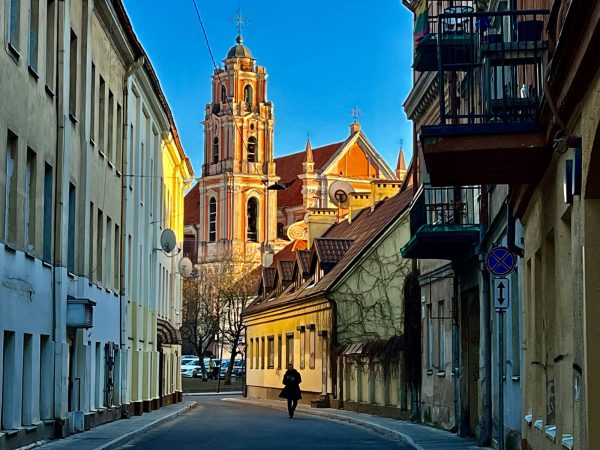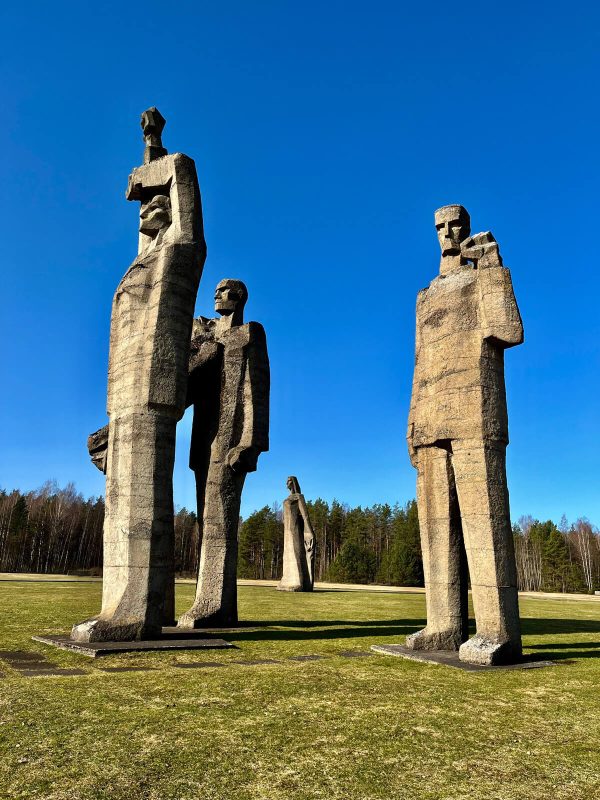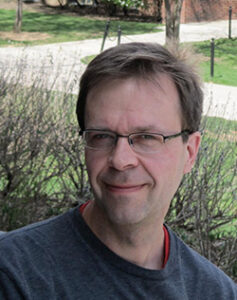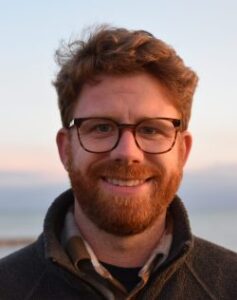Studying the Holocaust in Latvia and Lithuania offers a unique opportunity to connect with history by visiting key sites where atrocities occurred. Students will gain a profound understanding of the Holocaust’s impact on Jewish communities in the Baltics and the broader significance of preserving memory.
The trip will begin in Riga, Latvia, with visits to Holocaust-related killing sites and museums. On the third day, we will travel to Lithuania, stopping at synagogues and a notorious killing site on the outskirts of Kaunas. In Vilnius, we will spend three days exploring the former ghetto, the Jewish museum, the National Library’s Jewish book collection, and the Ponary memorial.
The program will include most meals, accommodations and transportation, except for the transatlantic flight. This course is taught in English and is open to all majors and semester classifications.
Program Dates: March 9–16, 2025
Pre-requisites/Eligibility: Students must be enrolled in HST/JST 426 during the spring 2025 semester.

This program is open to students taking HST/JST 426 in the spring 2025 semester. Students who commit to the program will be manually enrolled in JST 197, the 1-credit embedded travel course.
Students should review their academic term plans to determine any financial implications, especially if you plan to take over the maximum 19 credits in a semester. Students can anticipate actual charges using the University’s updated Tuition Calculator.
Program Fee: Maximum of $2,000. This fee includes hotel accommodations based on double occupancy (including breakfast each day), all entrance fees, and many meals.
Airfare: Students will purchase their own roundtrip airfare with guidance from the faculty leader (airfare is estimated to be around $1,300). Students will travel together on the same flight so students should not book their flights separately.
In-Country Costs: Please consult with your faculty leader about the amount of money to bring to cover the costs of meals and any additional spending money.
NOTE: The embedded program fee will be billed to participants’ Penn State Office of the Bursar accounts in early January, and payment will be due January 22.
The embedded program fees include: hotel accommodations (with breakfast); many meals; group transportation to/from airports in Europe, and group transportation FROM domestic airport to State College; transportation and fees related to program activities; 24-hour emergency and administrative support
The embedded program fee does NOT include: airfare; group transportation TO airport in the United States; some meals; spending money (souvenirs, gifts, etc.), gratuities; course tuition; fees related to visa or passport (if applicable)
To officially commit to the program, thoroughly read and submit the Official Financial Commitment Form by Tuesday, December 3, 2024.
Students must fill out this form in order to be registered for JST 197, the 1-credit embedded travel course. Interested students with questions may email Professor Tobias Brinkmann at thb10@psu.edu.
Get career ready!
Embedded programs help students to gain key skills that employers are most looking for in college graduates, according to the National Association of Colleges and Employers (NACE). Below are 1–2 major competencies students can start to develop by participating in this program.
Career and Self Development
Display curiosity, initiative, and a drive for personal growth by actively seeking out the opportunity to apply concepts from your classes into a real-world context, such as globalization and multicultural encounters.
Equity and Inclusion
Gain awareness and skills needed to equitably engage and include people from different cultures and backgrounds by visiting historical sites and engaging in lively discussions to better understand key issues surrounding the Holocaust.
Want to hear more? Meet with a Liberal Arts career coach in the Career Enrichment Network to discuss your experience and identify even more ways that this program can enhance your personal and professional development!



